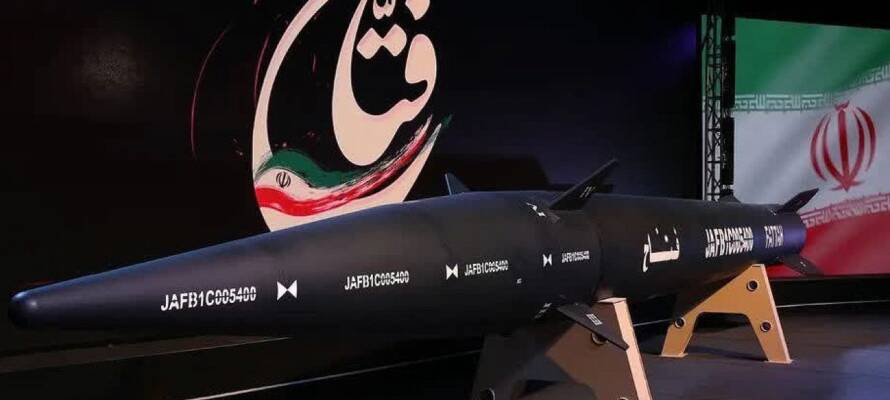The Islamist regime’s ballistic missile program will need at least a year to recover from the strikes.
By Debbi Weiss, The Algemeiner
Iran is not expected to retaliate for Israel’s precision airstrikes on its military and air defense sites, an Israeli weapons systems and intelligence expert told The Algemeiner on Sunday, adding that the Islamist regime’s ballistic missile program will need at least a year to recover from the strikes.
Dr. Eyal Pinko, who served in the Israeli navy and intelligence for more than three decades, said that while Saturday’s operation demonstrated Israel’s “amazing intelligence capabilities,” it was unlikely to appease the Israeli public, which was hoping for a more expansive retaliation targeting Iran’s nuclear program.
Israel’s strike on Saturday involved over 100 aircraft targeting Iranian missile production sites and air defenses, leaving Tehran vulnerable and disabling its key defensive capabilities. However, with US President Joe Biden pressing for restraint to avoid a broader regional conflict, Israeli officials have refrained from escalating the strike to include nuclear facilities and oil refineries.
The attack unfolded in a coordinated, three-wave strike. First, Israeli forces targeted radar systems in Syria and Iraq to clear the path for the main assault, followed by strikes on key Iranian air defense systems, including several S-300 and S-400 batteries around Tehran and Isfahan, effectively dismantling much of Iran’s aerial defense network. The third wave focused on Iran’s ballistic missile production facilities, aiming to disrupt missile manufacturing rather than existing stockpiles. According to Israeli defense sources, the operation significantly hindered Iran’s missile capabilities and production capacity, reducing its ability to launch large-scale attacks in the near future.
Israeli Prime Minister Benjamin Netanyahu said the “precise and powerful” air attack was in response to Iran firing more than 180 missiles at Israel earlier in the month, as well as ongoing attacks from its terror proxies in the region.
“Iran attacked Israel with hundreds of ballistic missiles and this attack failed. We kept our promise. The air force attacked Iran and hit Iran’s defense capabilities and missile production,” Netanyahu said, adding that the attack “achieved all its objectives.”
According to Pinko, all evidence points to Iran being a threshold nuclear state, but nonetheless Israel was unlikely to target Iran’s nuclear infrastructure, especially so close to the US elections on Nov. 5.
“In the short term I don’t believe that Israel will re-attack Iran. In the next few months, I believe we have a window of opportunity for both sides to [deescalate],” he said in a call with reporters.
Iran has effectively crossed into nuclear threshold territory, Pinko argued, citing its advanced uranium enrichment, missile capabilities, and a history of weaponization efforts. According to intelligence reports from the CIA, US Congress, and the International Atomic Energy Agency (IAEA), Iran has already reached uranium enrichment levels close to 90 percent — near weapons-grade. He further pointed to Iran’s proven ballistic and cruise missile range, capable of striking Israel, and recalled the stolen document trove revealed by Netanyahu in 2018 that outlined a comprehensive weaponization system.
“If we take those three elements — of weapons, the system that enables the nuclear reaction, and the enrichment of uranium,” Iran has possessed the critical components for a nuclear weapon “for at least three years,” Pinko said, adding that the regime has kept its capabilities under wraps in a bid to bolster its bargaining position on getting sanctions lifted.
“They have operational nuclear capabilities and are now stalling and playing with the narrative that they don’t, or that they are delaying, because this allows them a lot of political maneuvering,” he told The Algemeiner.
By downplaying the impact of Israel’s recent strikes domestically, Tehran is aiming to avoid escalation while hoping that Democratic presidential nominee Kamala Harris will secure the US presidency in the upcoming election, he said. Harris’s opponent, Republican nominee Donald Trump, had imposed crippling sanctions on Iran after he withdrew the US from a comprehensive but temporary nuclear deal with Iran in 2018 while serving as president.
With Iran’s options for rebuilding limited by Russia’s military commitments in Ukraine, Pinko expects Tehran will turn to China for assistance in replenishing its S-300 air defenses and other critical military infrastructure. China has been a strategic partner for Iran in defense and technology since the 1990s, providing support across areas such as missile development and cyber capabilities. Pinko’s assessment underscores a shifting dynamic where Iran’s defense strategy may increasingly rely on its Sino-Iranian partnership to reinforce its position amid Israeli and Western scrutiny. China’s S-300 air defense system is based on Russian technology, but it has likely incorporated upgrades to enhance performance, he said.
Pinko also pointed to Supreme Leader Ayatollah Ali Khamenei’s declining health as a factor in Iran’s restraint. With the 85-year-old revealed to have terminal cancer, internal power struggles over his succession have intensified, creating additional uncertainty in Tehran’s strategic decisions.
In his first remarks since the attack, Khamenei on Sunday said an Iranian “response would be determined by senior officials, in a way that best serves the interest of the people and also takes the state into account.”
“Israel made a mistake. They exaggerated, of course. To exaggerate about this is a mistake,” the Iranian leader continued. “But downplaying this is also a mistake. To say, ‘nothing happened; it wasn’t important,’ is also a mistake.”
He added, “The incorrect assessment by the Zionist regime must be corrected. They have a mistaken assessment about Iran.”
On Monday, Iranian Foreign Ministry spokesperson Esmaeil Baghaei said that the regime will “use all available tools” to respond to Israel’s strikes on military targets in Iran over the weekend.
